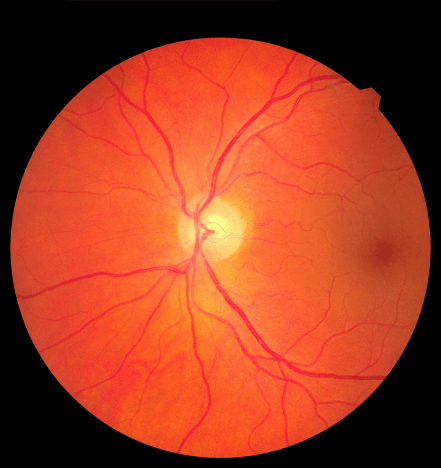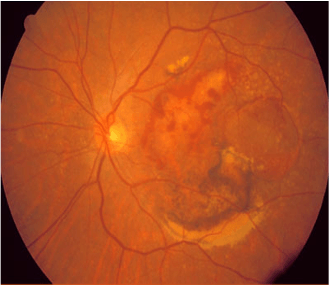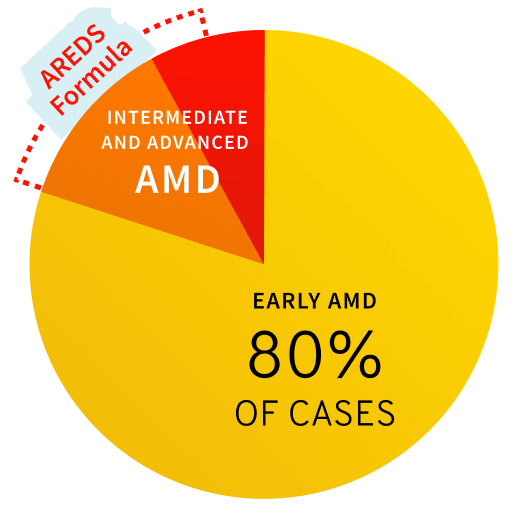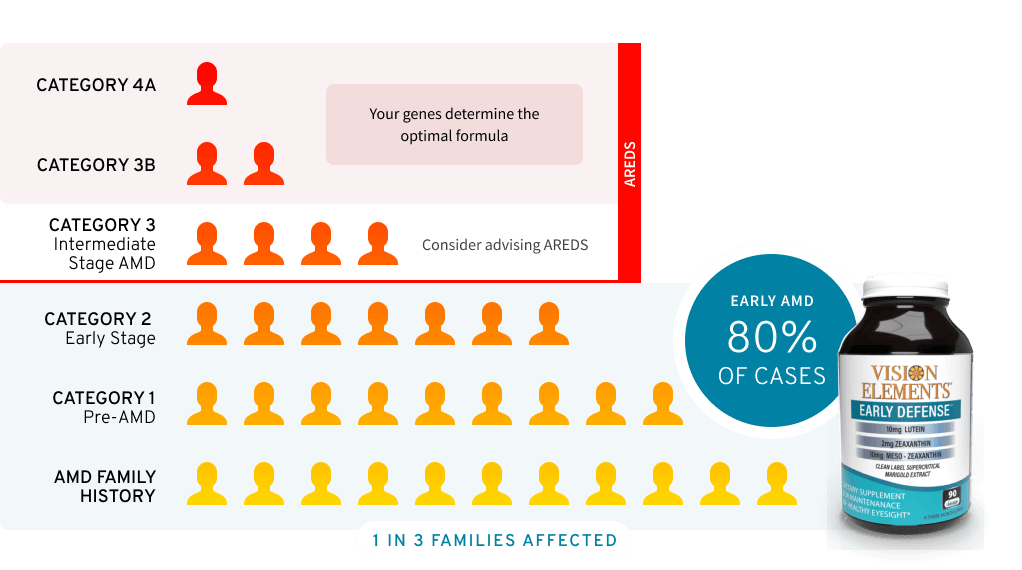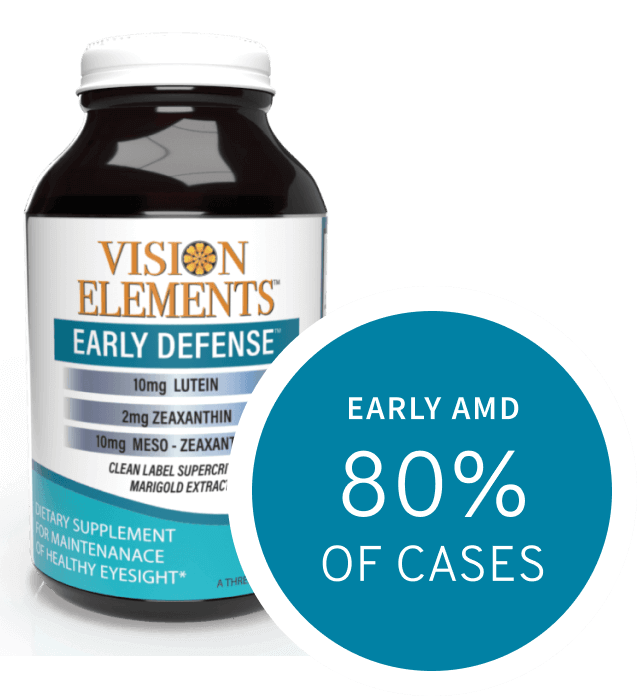AGE-RELATEd
macular
degeneration
WHAT IS AMD?
AMD is a progressive eye disease affecting the clear central vision needed for daily activities like reading or driving, leaving only peripheral vision intact. As toxic drusen deposits build up in the macula, the cells responsible for vision begin to break down under oxidative attack, leading to poor visual function.
1 in 5 AMD cases develop into the advanced form.
RISK FACTORS FOR MACULAR DEGENERATION
Low Macular Pigment is associated with virtually every risk factor for AMD
AGE
GENETICS
SMOKING
DIABETES
SUN EXPOSURE
DIETARY HABITS
VASCULAR DISEASE
EXERCISE ROUTINE
A diagnosis of AMD can be scary
Fortunately, AMD is generally a slow moving condition, and most people have an early form. This buys time to make positive lifestyle changes such as improving diet, exercise habits, and adding ocular nutrition products to help maintain eyesight.
AMD Genetic Testing
If you have intermediate stage AMD, a genetic test will help determine an individualized follow-up schedule based on genetic risk to closely monitor your condition.
Zinc, which is commonly found in ocular nutrition products, may be helpful or harmful. This can only be determined by your DNA*.
Imagine never driving, reading, or seeing a friend's face again.
Published research findings*
CONCLUSION
Higher intake of bioavailable lutein/zeaxanthin is associated with a long-term reduced risk of advanced AMD...
Intakes of Lutein, Zeaxanthin, and Other Carotenoids and Age-Related Macular Degeneration During 2 Decades of Prospective Follow-up.
Wu et al., 2015 JAMA Ophthalmology.
CONCLUSION
Lutein and zeaxanthin supplementation is a safe strategy for improving visual performance of AMD patients, which mainly showed in a dose-response relationship...
Lutein and Zeaxanthin Supplementation and Association With Visual Function in Age-Related Macular Degeneration.
Liu et al., 2014 IOVS.
CONCLUSION
...using AREDS type supplements significantly increases the risk of nvAMD for some users and significantly protects other users.
Genetics and Age Related Eye Disease Study Formulation Interactions in Neovascular Age-Related Macular Degeneration (GAIN).
Kaufman et al., 2020 Journal of Vitreoretinal Diseases.
*These statements have not been evaluated by the Food & Drug Administration. This product is not intended to diagnose, treat, cure, or prevent any disease.



